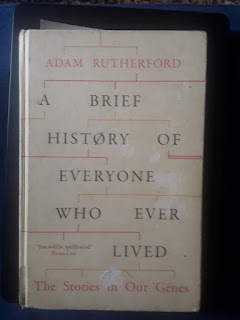"My mother was my confident, my cheerer-on, she who knew me best. She had loved me and spoiled me in the small ways she could. I would have done almost anything for one more Wednesday afternoon crossing Dam Square to reach De Bijenkorf, our hands gliding over the silks and satins of dresses made in Paris, sipping our cups of warm hot cocoa for me, coffee for her. I missed her devotion to me, the intimacy we built over those years when I was the only child, fortunate in my devoted, doting parents. Where was I in this world that kept getting darker if she was not there to help me find my way? I'd sometimes creep into the bedroom she had shared with my father and open her wardrobe to hold her dresses to my face, eyes closed, imagining I could still feel her here with me. On my fourteenth birthday, one week after she died, I thought of the word 'motherless' and realised that's what I'd be for the rest of my life. People I knew - meaning the best but breaking my heart - said that I was 'quite the little mother' for Gabi. But I didn't want to be her mother. I wanted our mother back.
Papa told me that the lessons Mama had taught me through the way she lived her life were now part of me too, woven into my heart and there to tap, even if I did not understand that now." (p.108)
After liberation she went to Palestine, became a nurse and married, living to the ripe old age of 93. Surviving and thriving seems to me to be the only way to deal with such inhuman treatment and horrifying experiences, and I was very much left with the feeling that her childhood full of family love and friendship fortified her, gave her resources to draw on and she was certainly an amazing woman.
Also this, the moment she and Anne become friends:
"We went into a classroom where there were lots of children looking extremely busy. Some sat at small desks, playing with wooden blocks; others traced letters or sat on mats working on their writing. I spotted a girl with glossy dark hair that was almost black. I couldn't see her face as her back was turned to me. She was playing on a set of silver bells. In that moment, she turned around and looked at me. In a flash, we recognised one another. It was the girl from the corner grocery store? We instantly rushed into each other's arms as if we were long-separated sisters, sentences in German flowing between us like a volcano of connection. My clenched stomach released; my anxiety vanished and I smiled.
'My name is Annelies. You can call me Anne,' said the girl."












